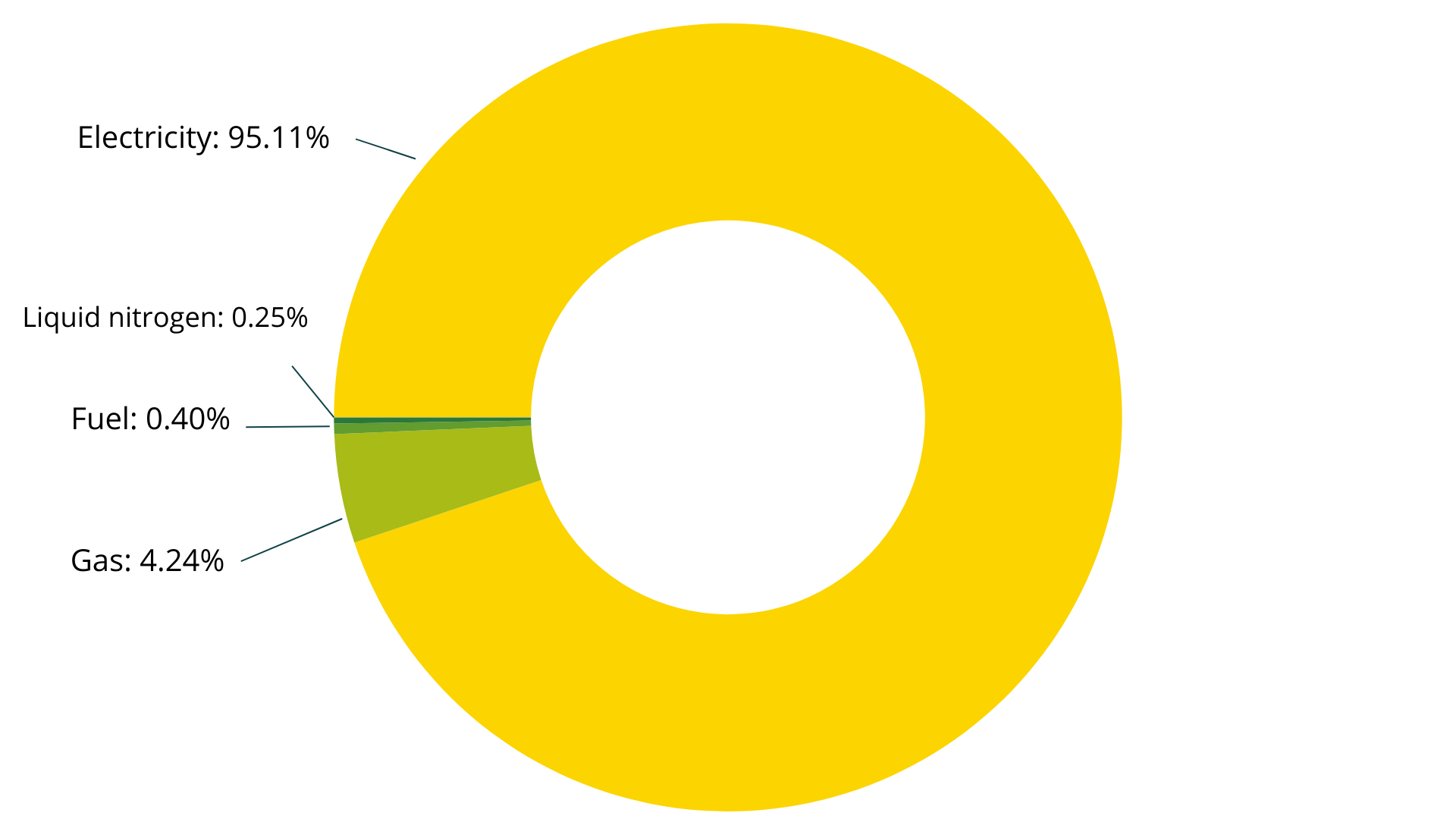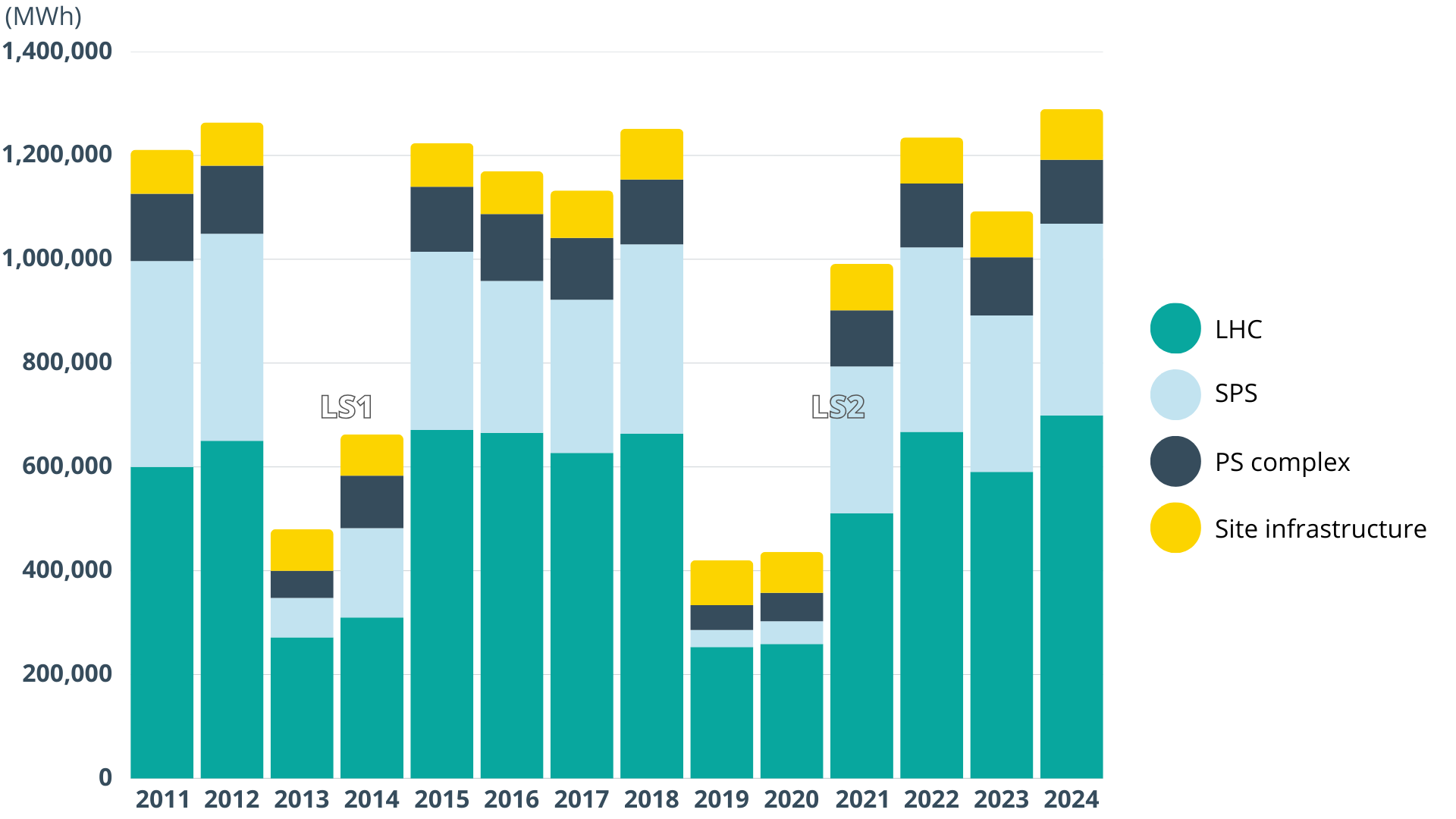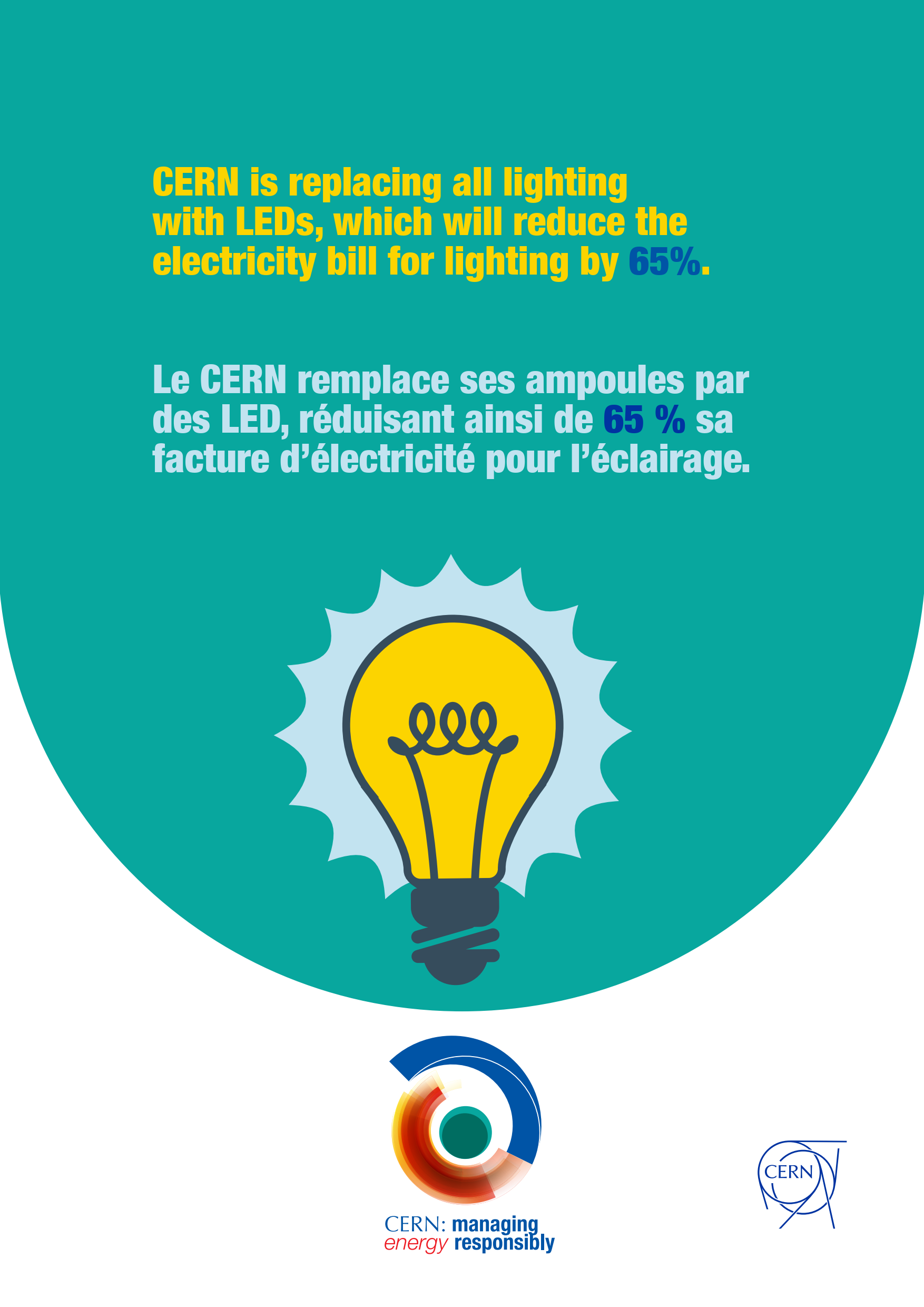Managing energy responsibly
Now more than ever it is important to manage energy responsibly, and CERN is committed to continuous improvement of its energy performance.
CERN is committed to improving its energy performance as part of its commitment to environmentally responsible research. In line with the strategic objectives of the CERN Management, and with the increasing need globally to manage energy, CERN is making improvements on the short and long term.
Energy management at CERN is overseen by the Energy coordinator, Nicolas Bellegarde, in collaboration with the Energy Management Panel (EMP), the enlarged EMP and the CERN Environmental Protection Steering board (CEPS).
Contents of this page
- CERN's energy consumption
- CERN's energy policy
- CERN's energy management system (ISO 50001)
- Highlights on energy savings
- Feedback and resources
 |
|
Breakdown of CERN's energy consumption. Average of Run 2 and Run 3. |
CERN's energy consumption
Powering CERN’s unique array of accelerators, detectors and infrastructure primarily needs electricity, which accounts for about 95% of CERN’s energy use. In addition, the Laboratory uses gas for heating as well as fuel for transport and for backup diesel generators.
 |
| CERN's electricity consumption 2011-2024. |
For more detailed data on the Organization's energy consumption, you can go to the Web Energy Tool (accessible with your CERN login).

|
CERN's energy policy
Published in 2022, CERN’s energy policy is designed to continuously improve the Organization’s energy performance and minimise the impact of its activities on the environment.
Its objectives are to:
- keep the energy required for its activities to a minimum,
- improve energy efficiency, and
- recover waste energy.
Continuous improvement of energy performance will be made by:
- defining, monitoring and updating guidelines, objectives and indicators based on energy use measurements, best practices and feedback;
- training and awareness raising of the CERN community;
- monitoring trends, regulatory developments and best practices in energy performance;
- an energy management system compliant with the ISO 50001 standard.
CERN’s energy management system (ISO 50001)
 |
|
CERN's ISO 50001 certificate was issued by AFNOR in February 2023. |
As part of CERN’s commitment to managing energy responsibly, the Organization began the ISO 50001 certification process in 2022. The certification was obtained on 2 February 2023, and following successful audits in November 2025, officially renewed for three years until 1 February 2029.
ISO 50001 is the reference international standard that implements systems and processes to improve energy performance continuously. It requires setting up, monitoring and improving an energy management system aligned with CERN’s energy policy and with relevant legislation.
Benefits of ISO 50001 include:
- Improving CERN’s governance and structuring on energy, whilst reinforcing best practices
- Systematically improving energy performance from an initial energy baseline
- Using data to make informed decisions about energy use and consumption
- Fixing energy performance indicators and objectives
- Identifying, assessing, and ranking energy improvement actions based on a common defined methodology
- Measuring the results of energy performance improvements
- Integrating energy matters within the relevant processes across the Organization (e.g. operation , design, procurement, human resources, awareness, communication, management review, internal audit)
- Bringing together people around projects of common interest
- Continually improving energy management to minimise CERN’s footprint, whilst ensuring benchmarking against other research institutes and industrials
You can consult the current version of CERN's energy performance plan here (in French, please sign in for access).
Find out more about the current status of energy-savings related projects at CERN in the Environment Town Hall Presentation (8 November 2024)
CERN measures to save energy: highlights of the action plan over the next five years |
|
- Feedback and resources
